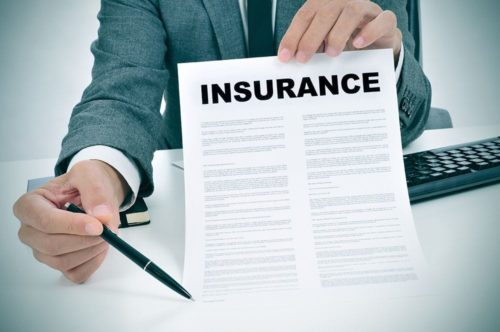
When Shopping For New Car Insurance
I have been recently seeing a trend in auto insurance companies issuing auto policies with minimal personal injury protection (PIP) coverage. New Jersey is a “no fault” state, meaning that regardless of fault the injured person’s own auto insurance policy covers his own medical bills resulting from treatment of injuries sustained in a car accident. When purchasing auto insurance in New Jersey, the insurance company will ask you a series of questions concerning coverage to include limits for bodily injury and property damage liability, uninsured and underinsured motorist coverage and PIP coverage. Your current policy contains a Declaration of Coverage page which sets forth the specific coverage that you have selected. I am limiting my discussion in this blog post to what I firmly believe, from a practical standpoint, to be the appropriate amount of PIP coverage to purchase when buying auto insurance in New Jersey.
When purchasing auto insurance, you will be asked to choose between basic versus standard PIP coverage. Basic PIP provides for a coverage limit of $15,000. Full standard PIP provides for $250,000 in coverage which may be reduced at the policyholder’s request. (i.e. $75,000 or some other incremental amount.) Although you may think that this substantial reduction in coverage saves you significant money on premiums, the truth is to the contrary. The savings from reducing PIP coverage from $250,000 to $15,000 is negligible. In fact, the savings from selecting $15,000 versus $250,000 in PIP coverage usually results in a $50 to $75 savings per six month policy period. As such, for an extra $100 per year, you would have an additional $235,000 in coverage. This is extremely important because if you are the unfortunate victim of a car accident, regardless of fault, you would be limited to the coverage you selected. If you needed surgery and a hospitalization, $15,000 in PIP coverage would be inadequate to cover the cost which could run into the tens of thousands of dollars. As a consequence, you may be precluded from obtaining necessary medical treatment due to your inability to pay.
I have seen an increase in the number of my clients who have the basic $15,000 PIP coverage. Many of these clients had no idea that they had such limited coverage until they needed medical treatment after a car accident. I have seen, firsthand, how someone with significant injuries has been precluded from getting medical treatment as a result of his inability to pay because he has limited coverage. Many people believe that their health insurance will provide adequate coverage when PIP is exhausted. However, this is not always the case. Health insurance such as Medicaid or policies issued under Obamacare, oftentimes will not provide for medical treatment for automobile accident injuries. Furthermore, many of these policies have very few doctors who are willing to participate in the respective plans. Therefore, even if you have one of these health insurance plans, your access to quality medical care may be limited. With PIP coverage, you are not restricted as to which doctor you may see. You may go to any specialist that you choose so long as the treatment is medically necessary and arises from the injuries sustained in the subject accident.
Why PIP Is Important
The bottom line is if you can afford an additional $50 – $100 in yearly premiums, my strong recommendation is that you purchase $250,000 in PIP coverage given the potential for significant injury which may arise from an auto accident. Failure to have the appropriate coverage may result in financial hardship and may cause catastrophic financial ruin even if the car accident was not your fault. This would be a good time to review your Declaration of Coverage page of your current auto policy to ensure that you are adequately covered.